Maryland Permit Test
1/143
There's no tags or description
Looks like no tags are added yet.
Name | Mastery | Learn | Test | Matching | Spaced | Call with Kai |
|---|
No analytics yet
Send a link to your students to track their progress
144 Terms
Driving test requirements
Vision screening
Knowledge test
Driving skills test
Reportable medical conditions
Licensing requirements/process
Rookie driver/graduated licensing system
Learner's instructional permit --> provisional license --> driver's license
Learner's instructional permit
Must:
- be 15 and 9 months --> parent/guardian must co-sign
- present a completed learner's permit school attendance certification form (if under 16)
- pass a vision screening and knowledge test
Provisional license
Must:
- be 16 and 6 months
- have completed driver's ed
- submit a completed and signed Practice and Skills Log documenting at least 60 practice hours with a supervising driver
- have a valid, unexpired permit
- have held a permit for at least 9 months
- NOT have any moving violation convictions or have been granted PBJ for any moving violations within the previous 9 months
- successfully pass the driving skills test
Driver's license
Must:
- be 18
- have held a provisional for at least 18 months
- NOT have any moving violation convictions or have been granted PBJ for any moving violations within the previous 18 months
Co-signer on minor's application for a license
- Must be a legal parent/guardian --> proof of relationship is required
- If the applicant is married and spouse is over 18, they may co-sign --> proof of marriage required
- If the applicant has no parent, legal guardian, or spouse, an adult employer or responsible adult may co-sign --> death certificates or parents or proof of emancipation is required
Cancellation of minor's license on request of co-signer
May cancel the minor's license by submitting a written request to the Motor Vehicle Administration's Administrative Adjudication Division - cancellation in effect until minor reaches 18 or someone else co-signs
Out of country licenses
Must complete vision screening, knowledge and driving skills tests, and a three-hour drug and alcohol education program --> if license is not English, must have International License or translation into English
Before you drive you must...
- be in good condition to drive
- have a vehicle in good condition to drive
- have a valid learner's permit/driver's license and vehicle registration card in your possession
- properly adjust your seat and mirrors
- ensure all passengers are wearing seat belts
How should you drive?
Defensively
- control the vehicle as necessary to avoid a crash
- in a responsible and safe manner
Visual Search/Driver Awareness
You should:
- constantly observe your surroundings
- watch front, sides, and rear of the vehicle
- allow yourself time to identify risks
What steps should you take to manage risk?
- adjust speed, position, and direction --> in response to roadway conditions
- enhance vehicle control and increase response time
- use turn signals --> let other drivers know your intentions
- maintain a safe distance between your vehicle and other roadway users
- do not assume other drivers will do what they are supposed to do
- use caution at all times
Right-of-way guidlines
Yield right-of-way to:
- the driver who is at or arrives at the intersection before you
- drivers in the opposing traffic lane --> when you are making a left turn
- the driver on your right --> if you arrive at the same time
- drivers on a public highway --> if you are entering the highway from a driveway or private road
- drivers already on a limited access or interstate highway --> if you are on the entrance or acceleration ramp
- the driver on your right at a four-way intersection controlled by stop signs
- pedestrians, bicyclists, and other drivers who are still in the intersection
- drivers on the through highway --> if you are at a "T" intersection and you are entering the through highway by either making a right or left turn
- other drivers --> if you are approaching an intersection with a Yield sign facing you
What is a speed limit?
The maximum legal speed you can travel on a road under ideal conditions
What speed is it safest to drive at?
At the same speed that most traffic is moving, up to the maximum speed limit.
Travelling at a lower speed than other traffic encourages other vehicles to constantly pass you and increases the chances or a crash.
Excessive speed...
- is one of the most common contributing factors of vehicle crashes
- does not save time and often leads to high-risk decision-making
- has severe and often disastrous effects
What does excessive speed do?
- reduces the ability to negotiate curves or maneuver around obstacles in the roadway
- extends distance necessary for a vehicle to stop
- decreases the driver's ability to realize and react to a hazard or dangerous situation
- increases risk of crashes --> other roadway users and pedestrians may not be able to judge distance accurately
- increases the force and impact in a crash --> can increase chances of more serious bodily injuries and death
Death is 8 times more probable in a crash at what speed vs what speed?
60 mph, 20 mph
The impact of hitting a solid stationary object at what speed is equal to falling off a how many story building?
60 mph, 10-story
Conditions which require reduced speed for safety
- sharp curves or hills --> where visibility is limited
- slippery roads
- roads where there may be pedestrians or animals
- shopping centers, parking lots, downtown areas
- traffic congestion
- narrow bridges and tunnels
- toll plazas
- schools, playgrounds, and residential streets
- railroad grade crossings
How far should you be from the vehicle in front of you in ideal driving conditions?
3 to 4 seconds --> if following a vehicle which stops often increase to 4 to 5 or more as needed
What factors can affect actual stopping distance?
- the length of time it takes a driver to see and recognize that there is a dangerous situation
- the type and condition of the roadway
- the condition of the tire treads
- the condition of the brakes
Switching lanes
- do not switch lanes until you determine it is safe to do so
- you should avoid drifting across lane lines and making lane changes within an intersection
Generally, keep vehicle to which side of the center of the roadway? Unless?
Right
Passing another vehicle going in the same direction, there is a traffic signal designating it is okay to do so, or there is an obstruction
When turning you should...
- look for signs and signals that give direction on when you can proceed
- plan before reaching the turning point
- activate your turn signal in advance to alert other drivers
- look behind and to both sides to ensure it is safe to proceed
- adjust your speed
Steps to take when making a U-turn
- check to see if U-turns are allowed
- turn on your left turn signal
- stop and yield for approaching traffic
- when the way is clear, proceed into the outside or right-hand lane travelling in the opposite direction
U-turns are...
- extremely dangerous
- not legal everywhere
Steps to take when passing (if permitted)
- estimate the time and space necessary
- be sure you won't interfere with any other vehicle
- use your turn signal to inform others of your intentions
- leave plenty of space --> go around the other vehicle at a safe distance
- see both headlights of the passed vehicle before returning to the original lane
Which side do you generally pass on?
Left of the other vehicle
When is it acceptable to pass on the right of the other vehicle?
- if it is safe to do so and you stay on the roadway
- the other vehicle is about to make a left turn
- you are on an unobstructed highway with two or more lanes moving in the same direction
- you are on an unobstructed one-way roadway wide enough for two lanes or more
What should you do if you are being passed by another vehicle?
Yield to the other vehicle and do not increase your speed
When can you not pass?
- where there is a no-passing zone
- where the solid yellow line is on your side of the center of the roadway
- where there are double solid yellow lines
- when passing will interfere with the safe operation of oncoming vehicles
- when approaching the top of the hill or on a curve --> insufficiently clear view ahead
- when crossing or within 100 feet of any bridge, elevated roadway, or tunnel
- on the shoulder of the highways --> to the left or right
What are you responsible for when parking your vehicle?
- making sure your vehicle is not a hazard
- making sure it is a space that is far enough from any travel lane to avoid interfering with traffic
- making sure your vehicle is visible to other vehicles approaching from either direction
When parking what should you always do?
- park in a designated area as required
- when parking along the roadway park your vehicle as far away from traffic as possible --> if there is a curb, park as close to it as possible
- set your parking brake when you park
- place the vehicle in gear if it has a manual transmission or in 'park' if it has an automatic transmission
- check your mirrors and traffic before opening the door
- shut the door as soon as you can after getting out
- take the ignition keys with you
- lock the doors whenever you leave your vehicle
Traffic signals, signs, and pavement markings...
- apply to everyone on the roadway or highway
- are the primary way of regulating, warning or guiding traffic on all roadways
- if not obeyed are one of the major causes of crashes
What are some exceptions to obeying all traffic control devices?
- emergency situations when directions from a police officer or other emergency personnel take priority
- uniformed school crossing guards directing traffic at locations near schools
What should you do when a traffic signal is not working?
Stop at a clearly marked stop line --> before entering any crosswalk --> before entering the intersection
What should you do after entering an intersection when the traffic signal is not working?
Remain stopped until it is safe to enter and continue through
What should you do if the street lights are not functioning?
Keep your headlights on to assist you with visibility and to ensure others can see you as well
When approaching an intersection controlled by a traffic control device what can you not do?
Drive across private property or leave the roadway for the purpose of avoiding a traffic control device
What should you do at a solid red traffic signal?
- come to a complete stop at the stop line --> if there is no stop line stop prior to the crosswalk and before entering the intersection
- remain stopped as long as the signal is red
- after coming to a complete stop you may turn right or you may turn left from a one-way street to another one-way street --> unless a sign prohibits it
- when turning on a red signal you must yield the right-of-way to pedestrians and all other traffic
What is a solid yellow traffic signal and what should you do at one?
- it means the signal is changing from green to red
- meant to provide time for approaching traffic to stop safely
- meant to allow time to clear other vehicles from the intersection before the signal turns red
- continue through the intersection with care --> if you are too close to the intersection to stop safely
What should you do at a solid green traffic signal?
- check to see that other vehicles have cleared the intersection
- proceed with caution into the intersection
- go straight-ahead or turn --> unless a sign or additional signal prohibits it
- you must yield to pedestrians and vehicles already in the intersection
What should you do at a solid red arrow traffic signal?
- come to a complete stop before reaching the stop line, crosswalk, or interst=ection --> if you intend to move in the direction indicated
- remain stopped as long as the arrow signal is red
What is a solid yellow arrow traffic signal and what should you do at one?
- means that the movement indicated by the arrow is ending
- slow down and proceed with caution
What should you do at a solid green arrow signal?
- proceed with caution in the direction the arrow points
- you must yield to all pedestrians and vehicles already in the intersection
What should you do at a flashing red traffic signal?
- come to a complete stop at the stop line --> if there is no stop line stop prior to the crosswalk and before entering the intersection
- yield to all other traffic and pedestrians
- proceed when the way is clear
What should you do if an alternately flashing red signal is located at a railroad crossing?
- you must come to a complete stop --> even if you do not see a train
- proceed when the way is clear
What should you do at a flashing yellow traffic signal?
- slow down and proceed with caution
What should you do at a flashing red arrow signal?
- come to a complete stop before reaching the stop line, crosswalk, or intersection
- yield to all other traffic and pedestrians
- procedd in the direction of the arrow when the way is clear
What are lane use signals?
- used to control traffic flow
- reverses a lane's direction during different hours of the day
- the lanes and their directions may be marked with signs, signals, and markings
What should you do in a lane with a red "X" signal?
You must never drive in this lane
What should you do in a lane with a green arrow signal?
You are permitted to drive in this lane
What should you do in a lane with a solid yellow "X" signal?
You should move out of this lane as soon and safely as possible
What do a flashing yellow "X" or two-way left-turn arrows mean and what should you do at them?
- they mean you are permitted to use the lane for a left turn
- the lane will likely be shared with left-turning vehicles coming from the opposite direction
Traffic signs
- use both symbols and word messages to convey information to road users
- you should be able to quickly identify traffic signs by their shapes and colors --> also by the words, numbers, or symbols on them
The principal background color of a traffic sign can tell you what at first glance?
What kind of information it has to offer
What does a red sign mean?
- prohibitive
- stop, yield, do not enter, or wrong way
What does a yellow sign mean?
- general warning of what to expect ahead
What does a white sign mean?
- regulatory
- speed limit, keep right, and some guide signs
What does an orange sign mean?
- construction and maintenance work area warning
What does a green sign mean?
- guidance information
- destinations, distances, and directions
What does a blue sign mean?
- road user services
- food, gas, rest area signs
What does a brown sign mean?
- recreation and cultural interest signs
What does a fluorescent yellow-green sign mean?
- school, pedestrian, and bicycle signs
What does a fluorescent pink sign mean?
- emergency traffic incidents
What does a black sign mean?
- certain regulatory signs
- one way signs, and changeable message signs
Why is it useful to know the meanings of the shapes of signs?
- in poor visibility conditions you may only be able to make out the shape of the sign --> could convey valuable information
What does an octagon shaped sign mean?
- stop
- you must always come to a complete stop
What does a triangle shaped sign mean?
- yield
- slow down --> if necessary give right of way to vehicle and pedestrians
What does a diamond shaped sign mean?
- warning
- warn of special conditions or hazards ahead
- you may have to slow down --> be ready to take appropriate action
What does a rectangle shaped sign mean?
- regulatory or guide
- vertical vs. horizontal
- vertical --> used to give you instructions or tell the rules of the road
- horizontal --> give directions or information
What does a pentagon shaped side mean?
- school zone and school crossing
What does a pennant shaped sign mean?
- indicates the start of a no passing zone
What does a round shaped sign mean?
- railroad crossing ahead
What does a cross buck shaped sign mean?
- marks the location of highway-rail grade crossing
What does a trapezoid shaped sign mean?
- recreation and cultural interest areas
- National Forest Routes
What are the three main regulatory signs?
- octagon, white letters on red --> stop
- triangle, red letter on white --> yield
- rectangle, black on white --> speed limit, other things
- left turn only
- regulatory
What does this sign mean?
What kind of sign is this?
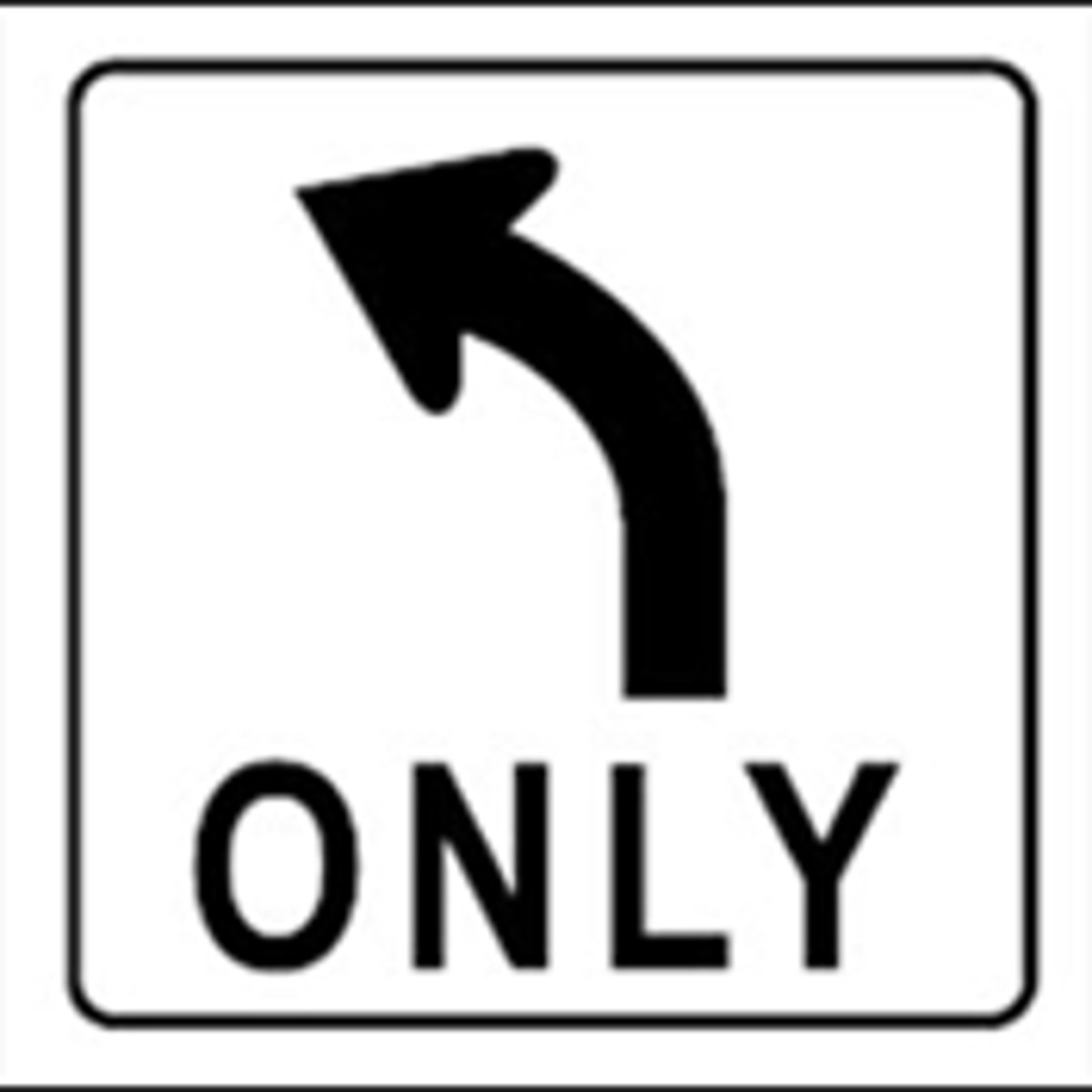
- do not pass
- regulatory
What does this sign mean?
What kind of sign is this?
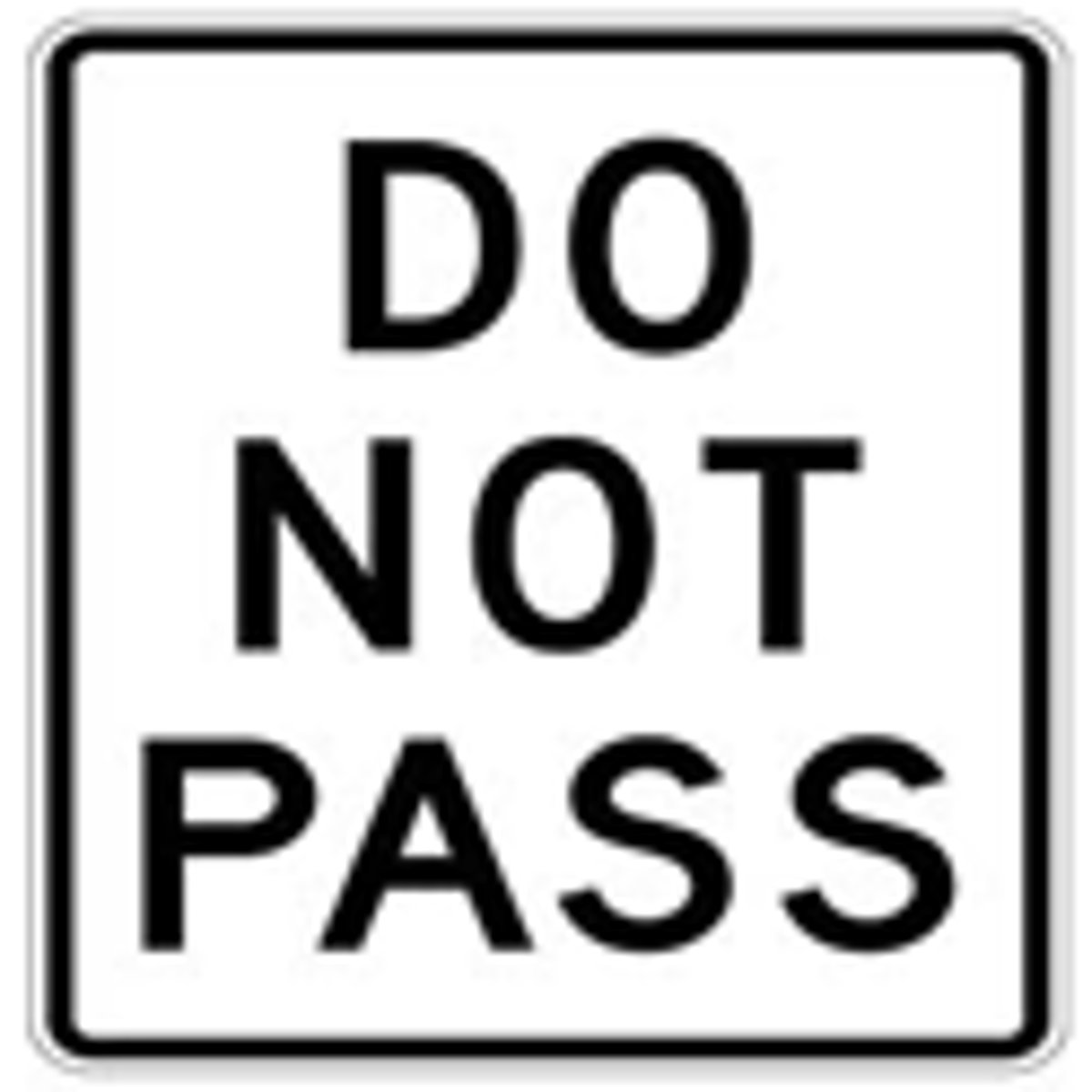
- one way
- regulatory
What does this sign mean?
What kind of sign is this?
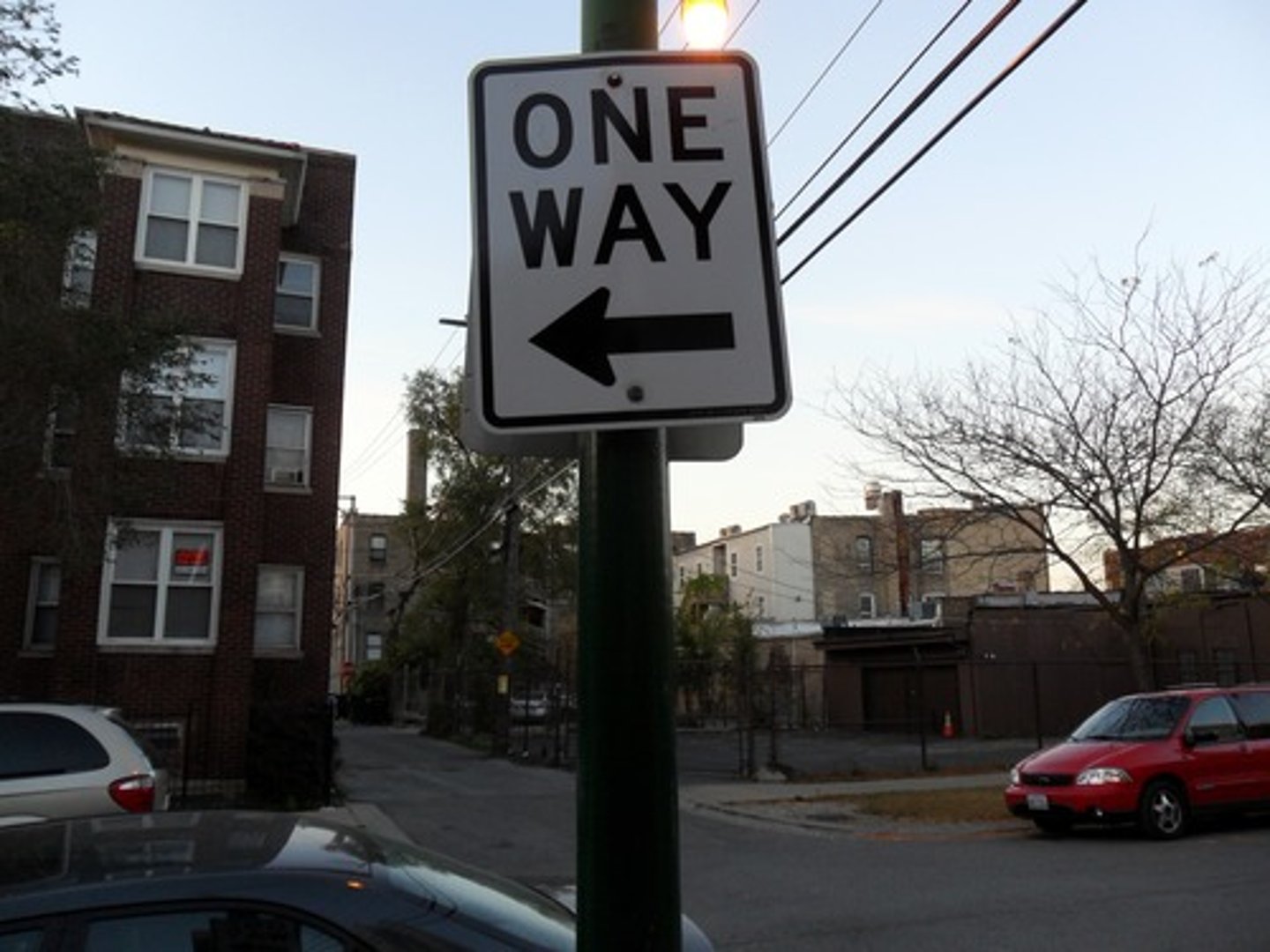
- do not enter
- regulatory
What does this sign mean?
What kind of sign is this?
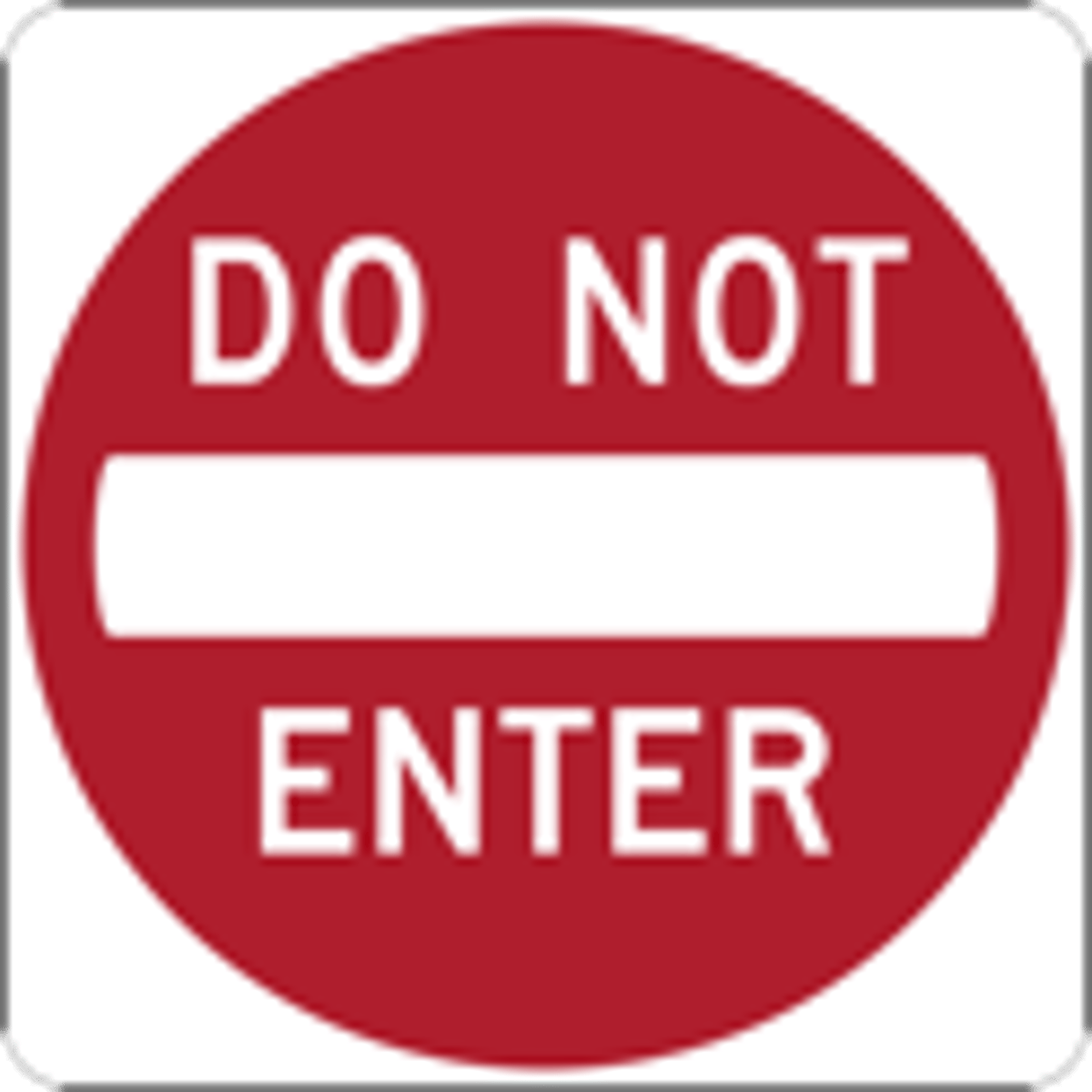
- no left turn
- regulatory
What does this sign mean?
What kind of sign is this?
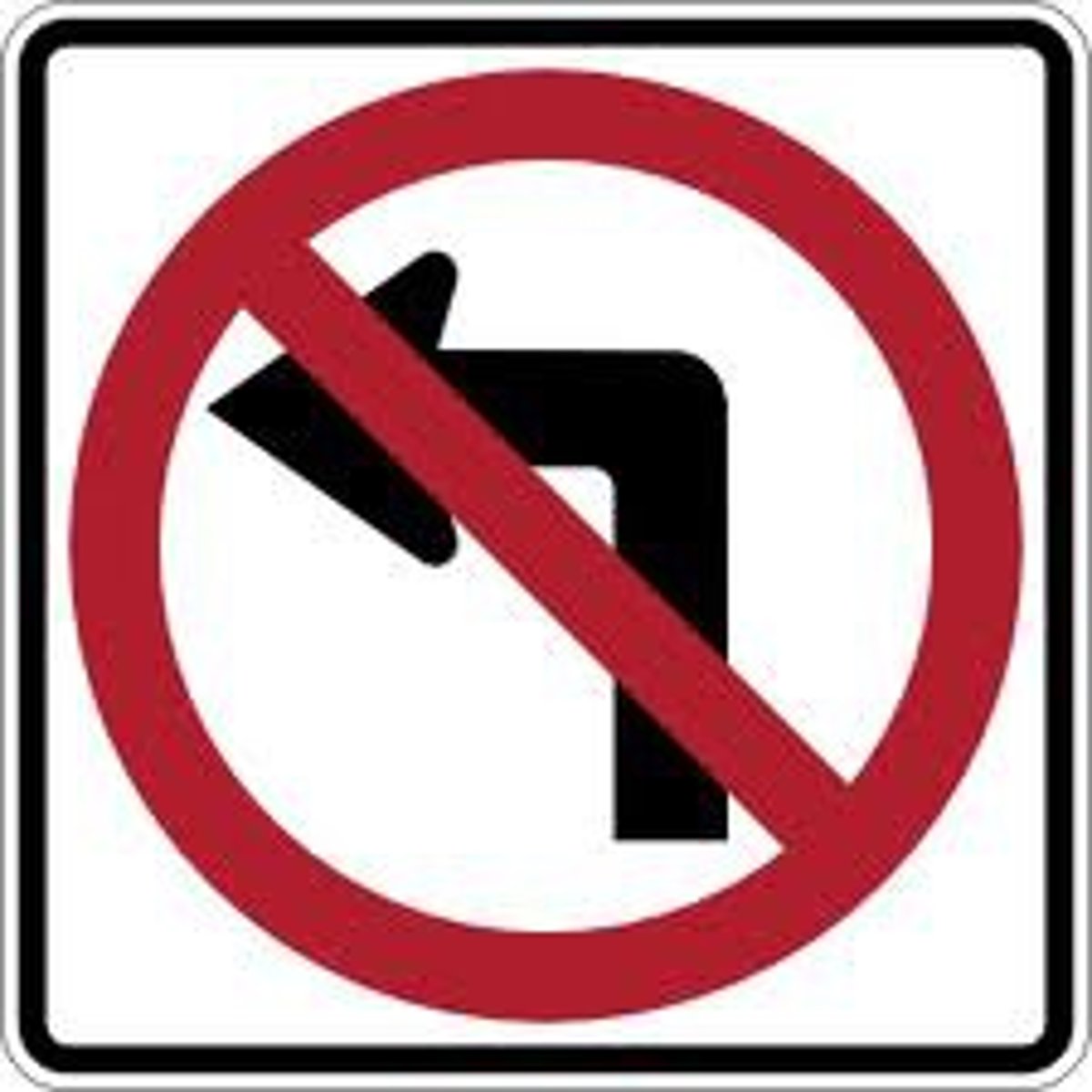
- no parking
- regulatory
What does this sign mean?
What kind of sign is this?
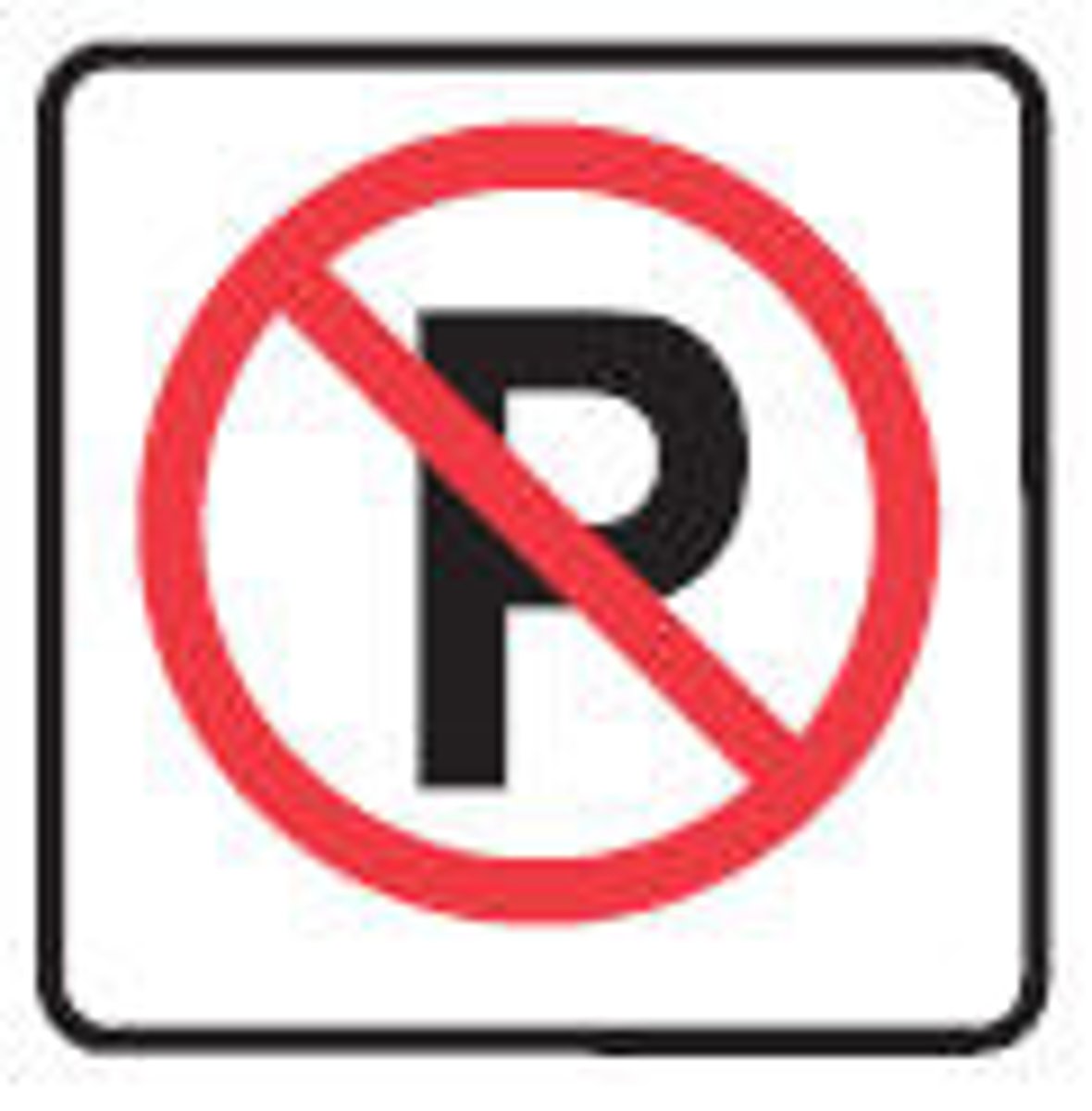
- no right turn
- regulatory
What does this sign mean?
What kind of sign is this?
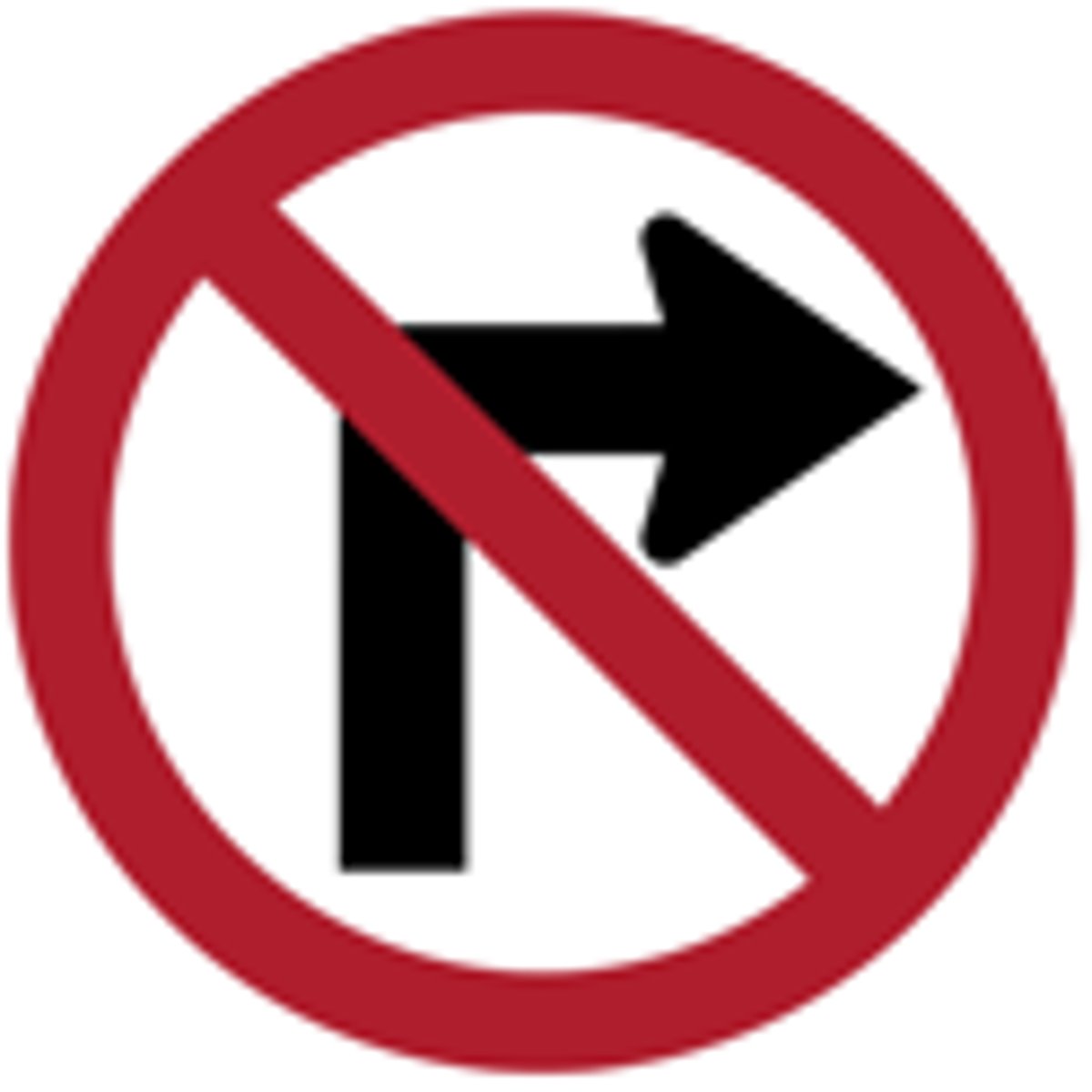
- wrong way
- regulatory
What does this sign mean?
What kind of sign is this?
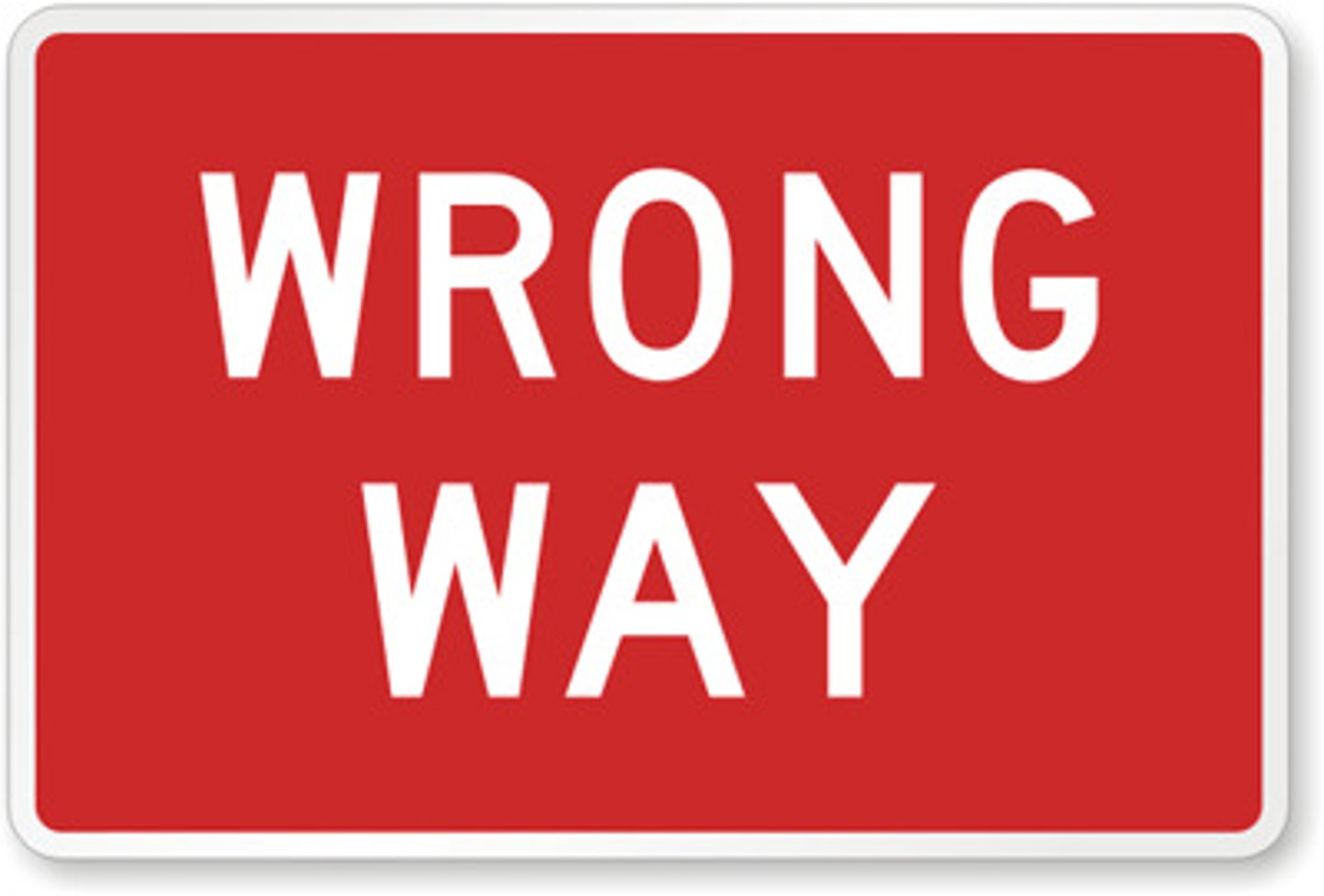
- no U-turn
- regulatory
What does this sign mean?
What kind of sign is this?
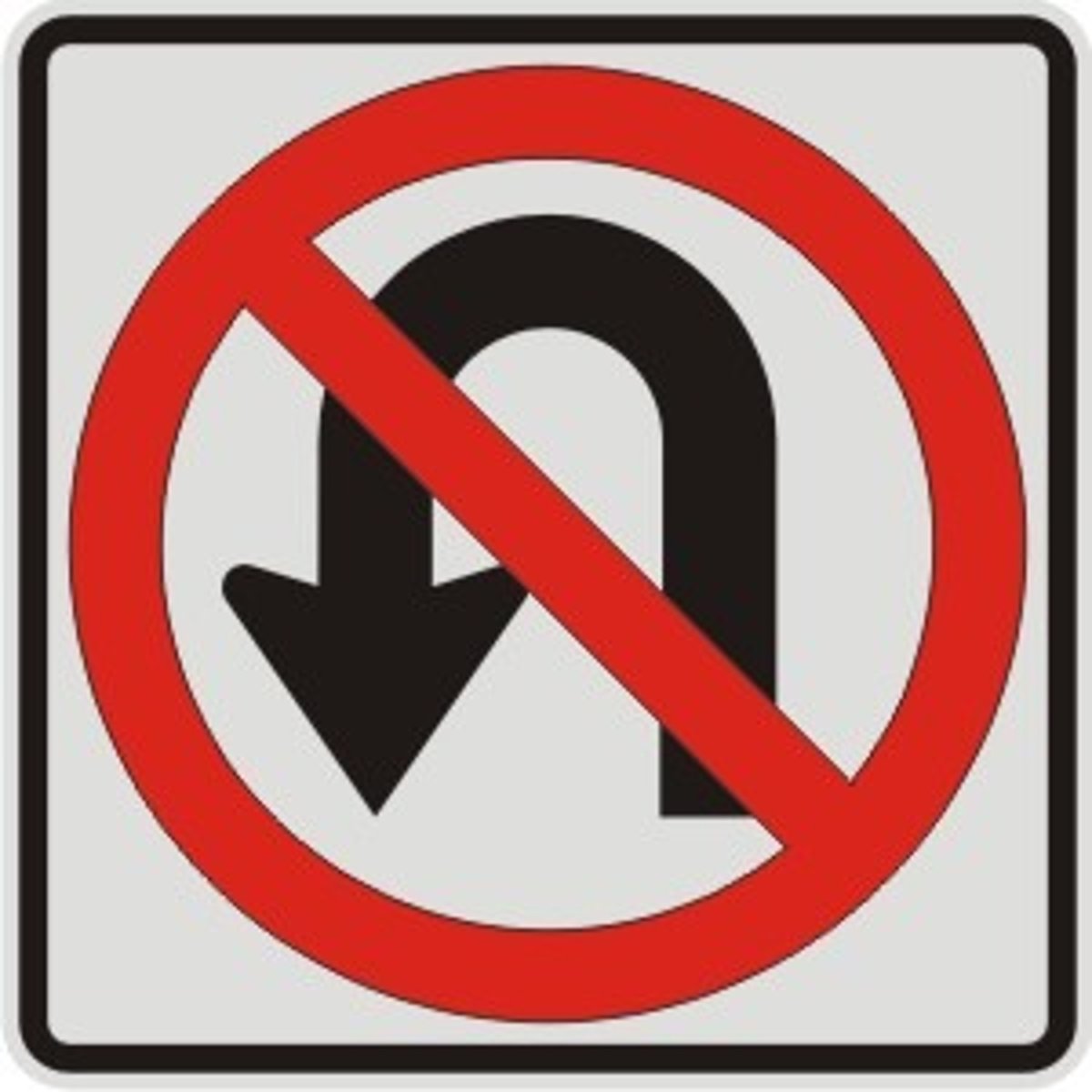
- stay to right of median
- regulatory
What does this sign mean?
What kind of sign is this?
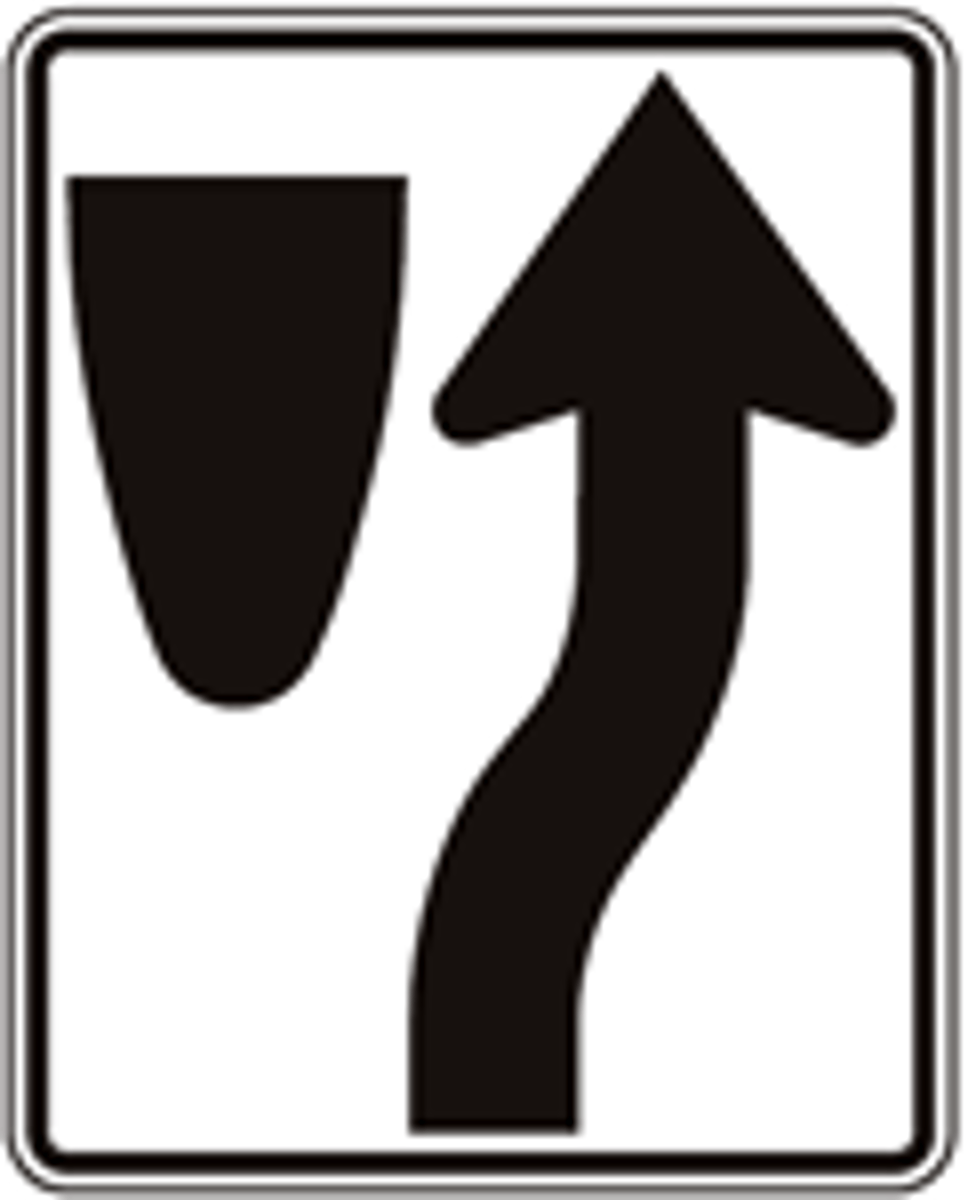
- reserved as disability parking space
- regulatory
What does this sign mean?
What kind of sign is this?
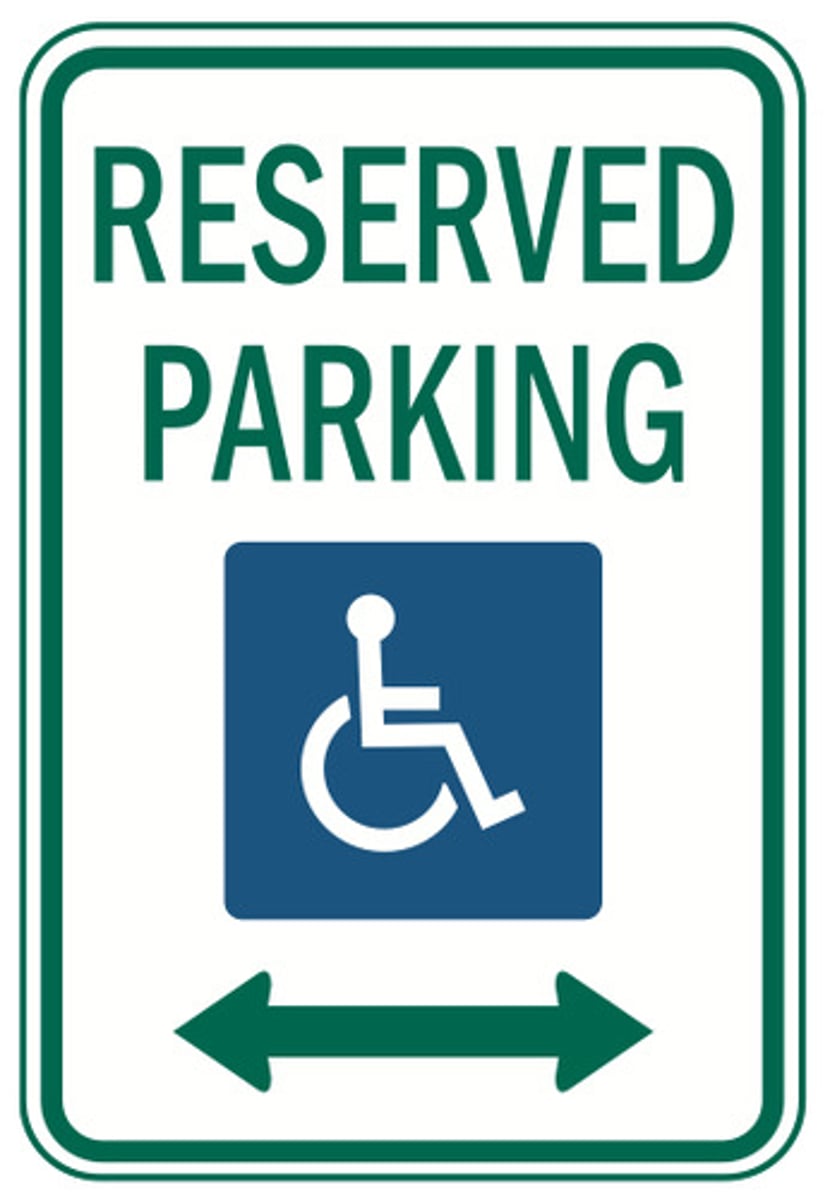
- high occupancy vehicles
- regulatory
What does this sign mean?
What kind of sign is this?
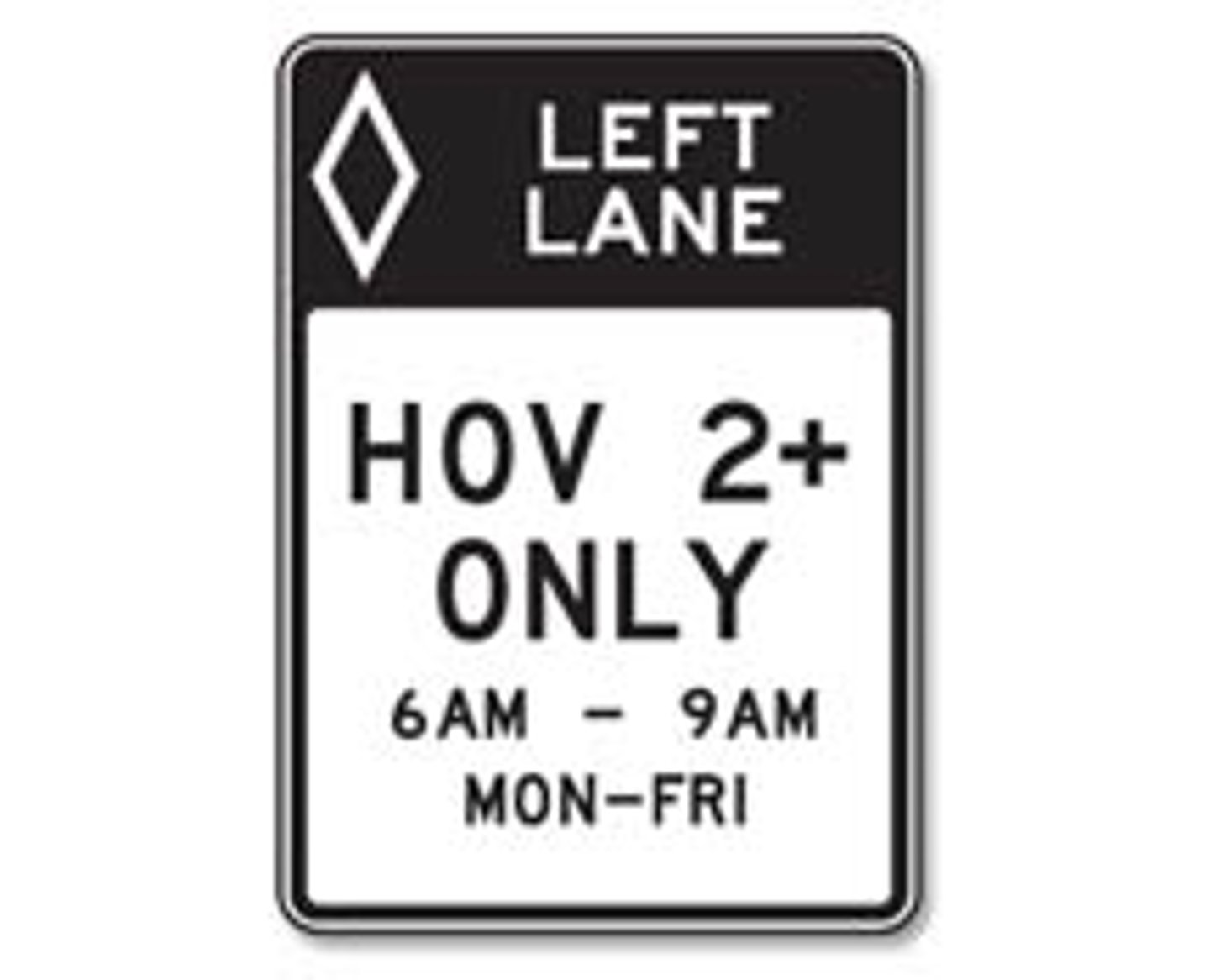
- two-way left turn only
- regulatory
What does this sign mean?
What kind of sign is this?
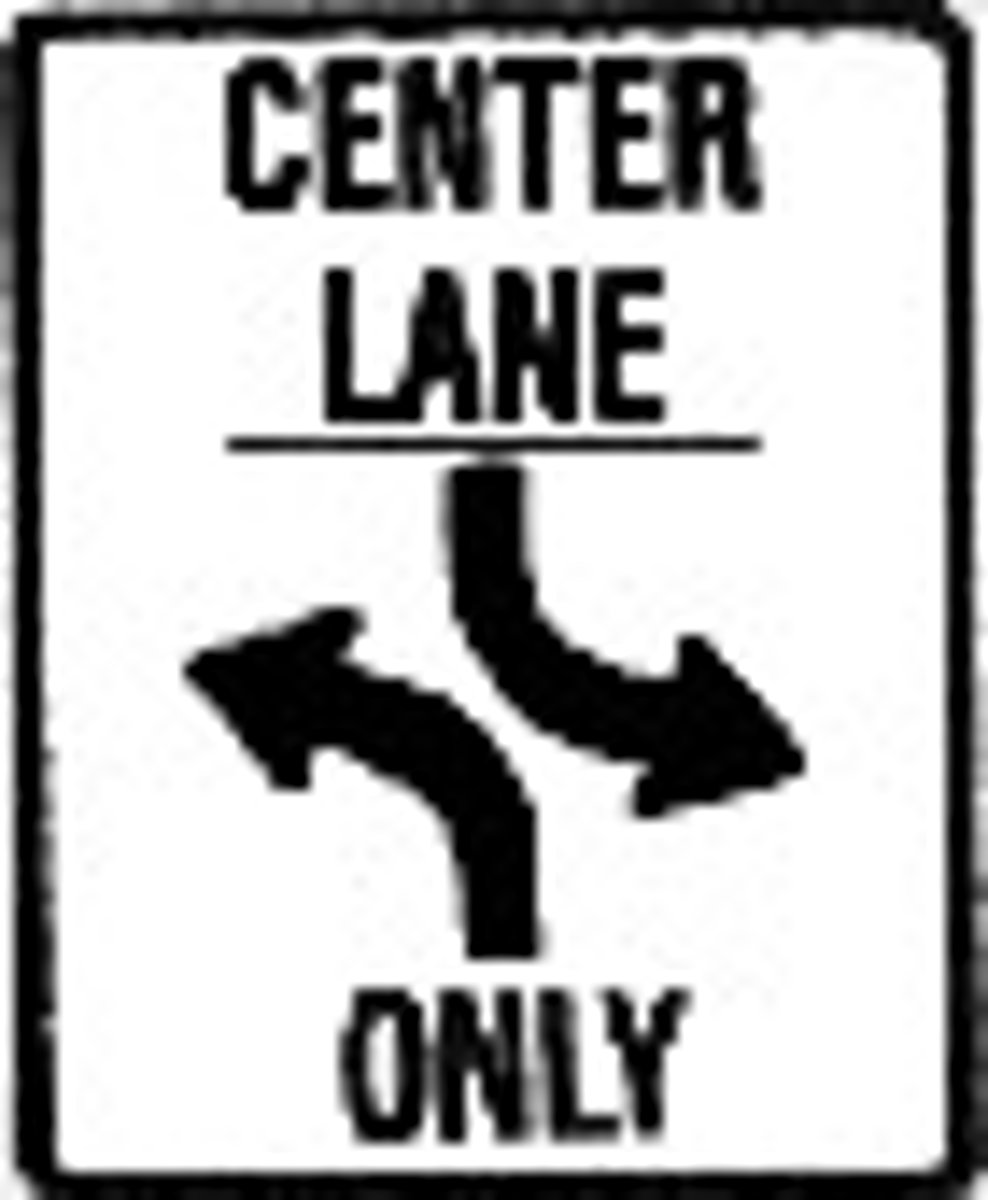
- left turn yield on green
- regulatory
What does this sign mean?
What kind of sign is this?
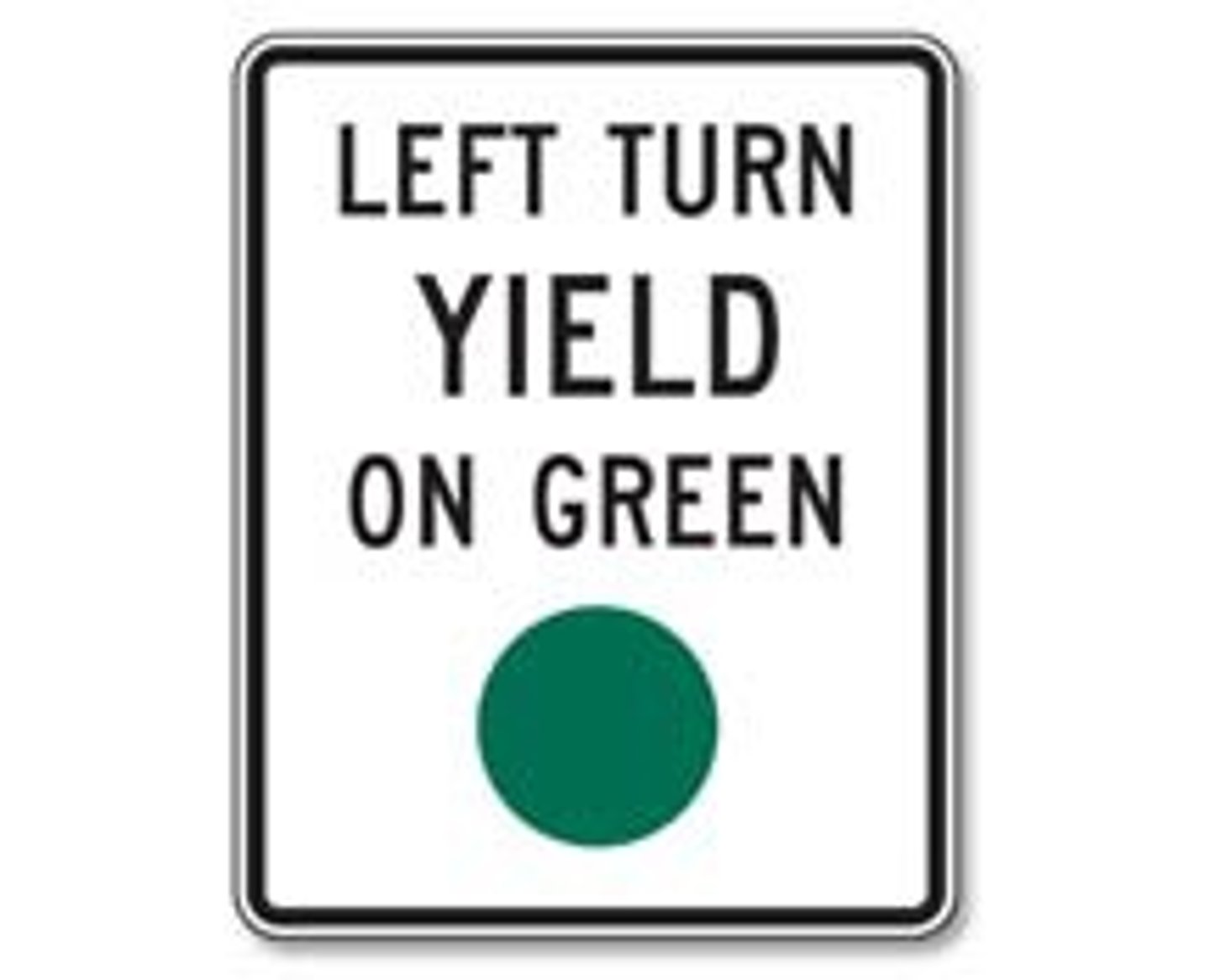
What are overhead lane use signs?
- they are placed above the roadway
- provide direction on the specific use of lanes or to provide destination or directional information
Overhead lane sign
What type of sign is this?
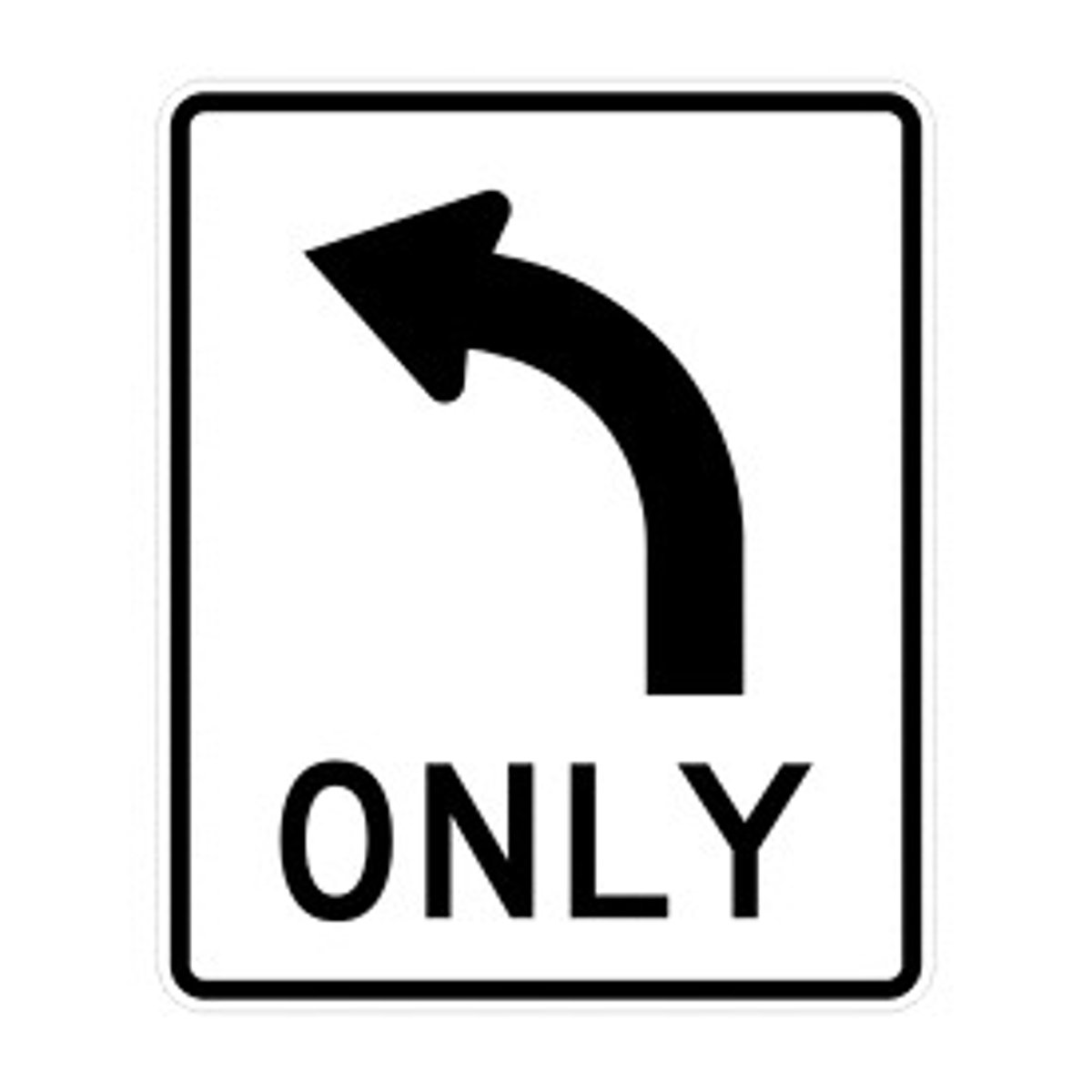
Overhead lane sign
What type of sign is this?
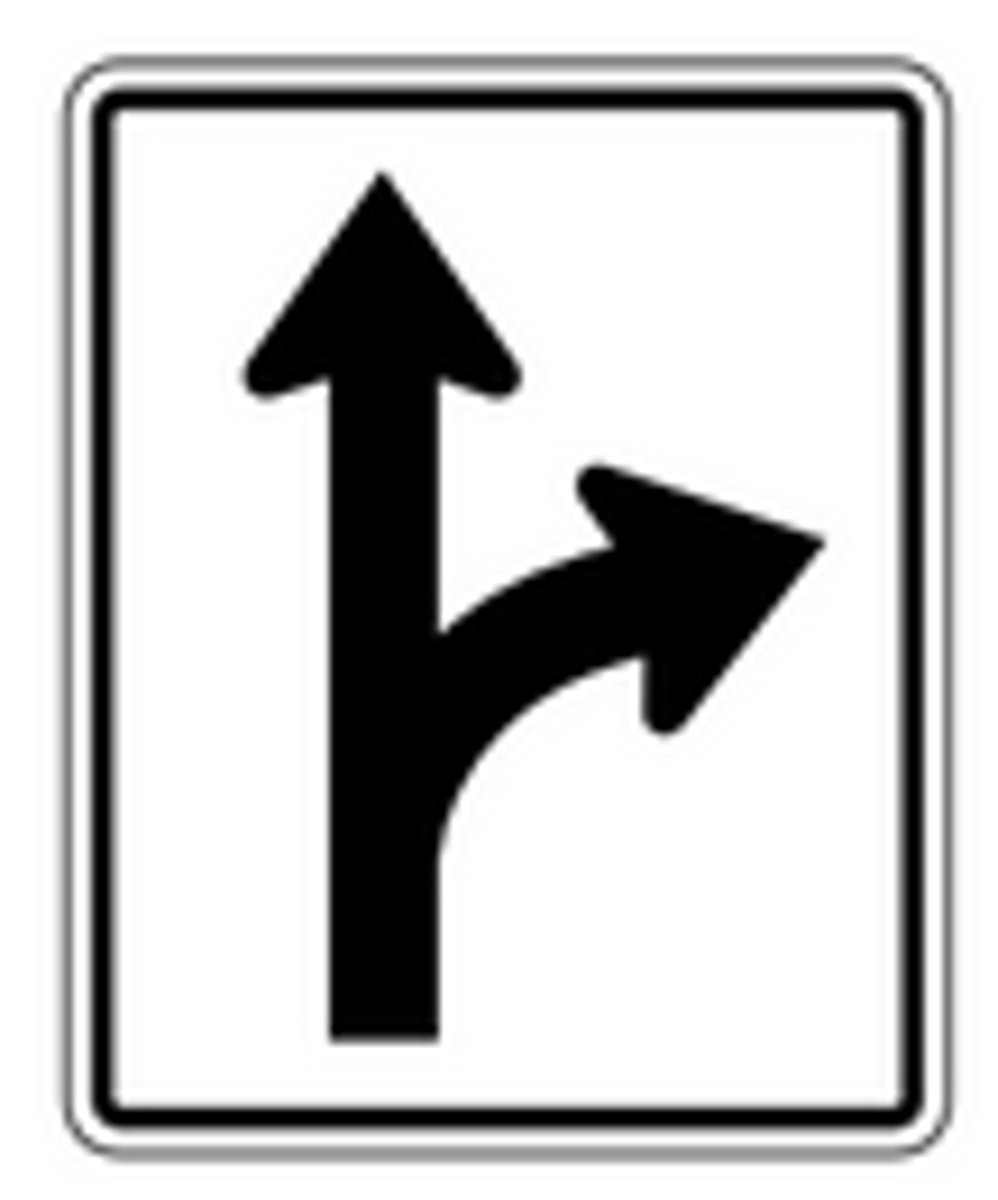
Overhead lane sign
What type of sign is this?
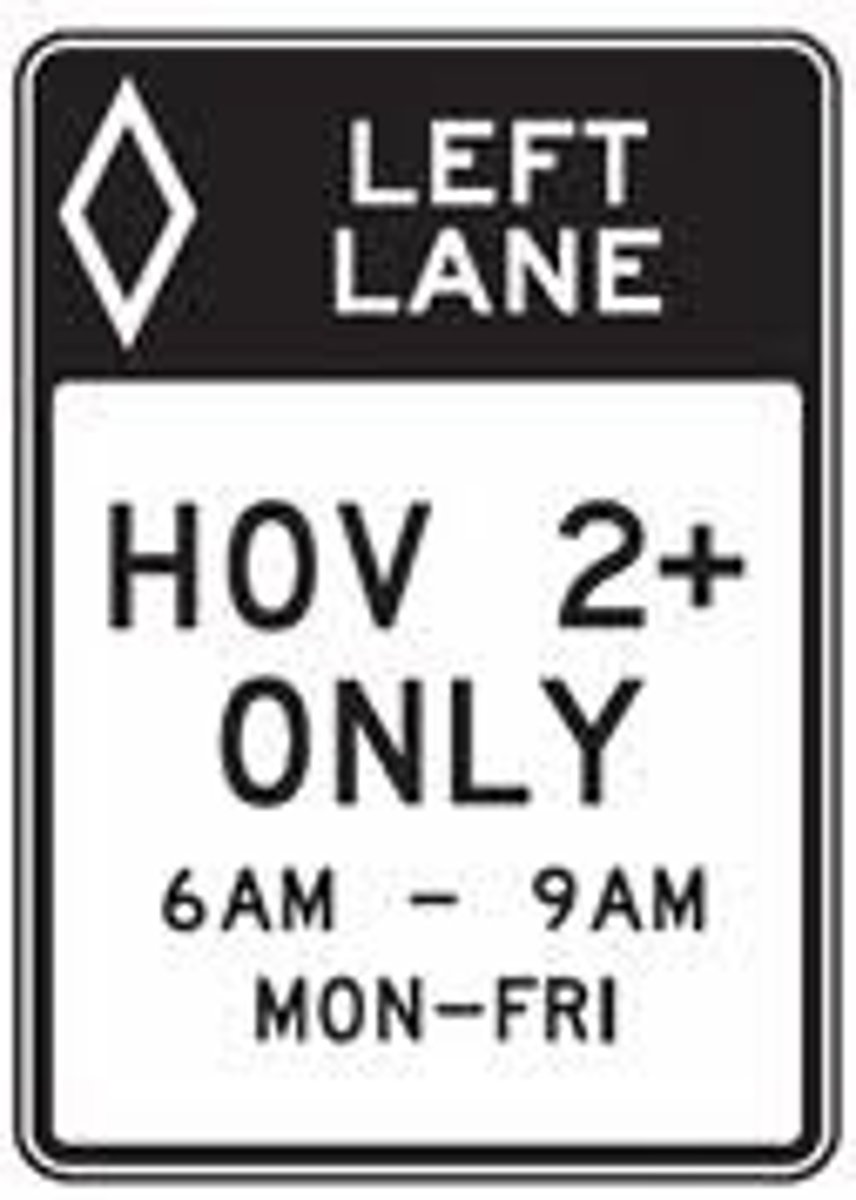
Overhead lane sign
What type of sign is this?
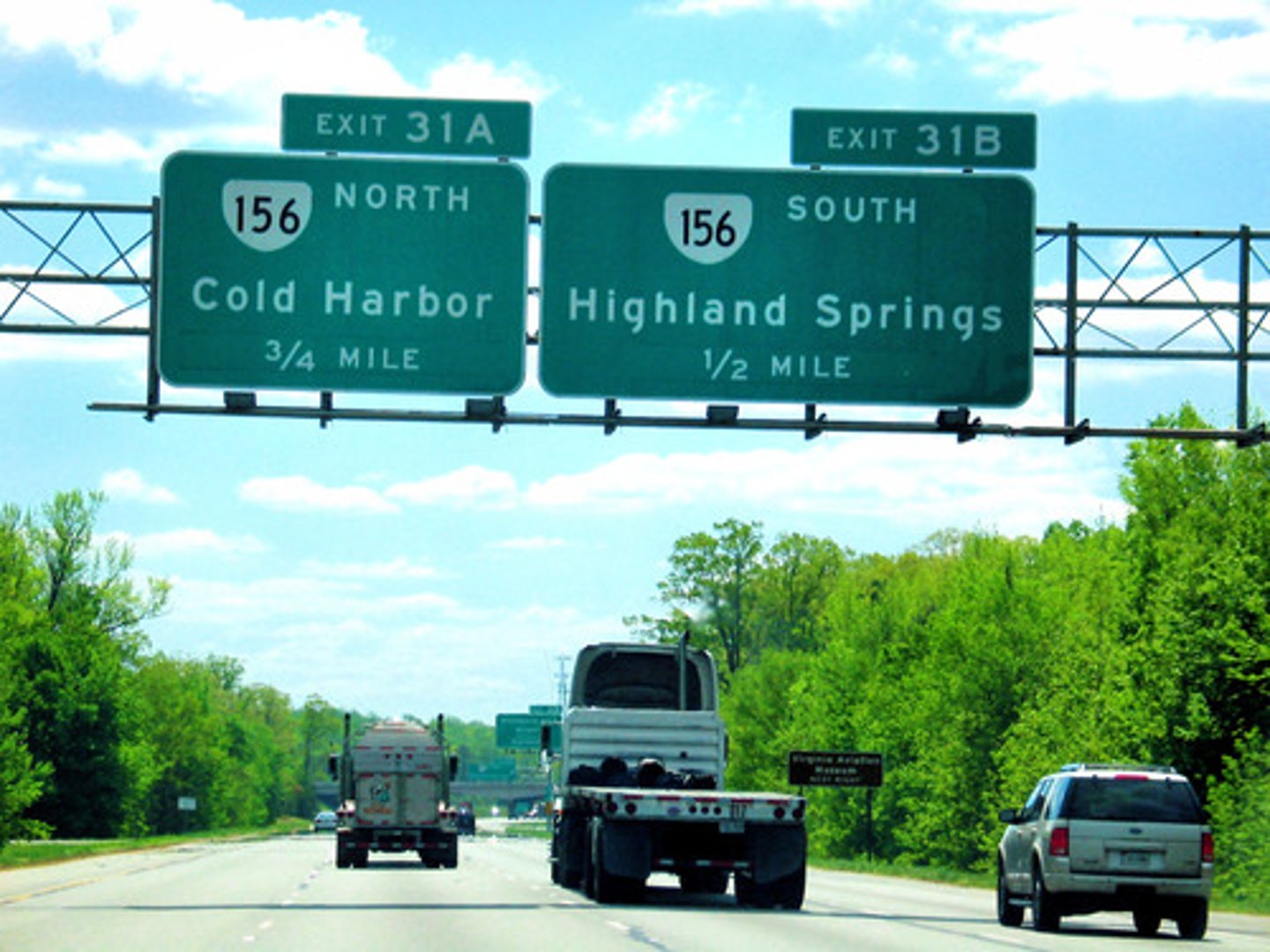
Overhead lane sign
What type of sign is this?
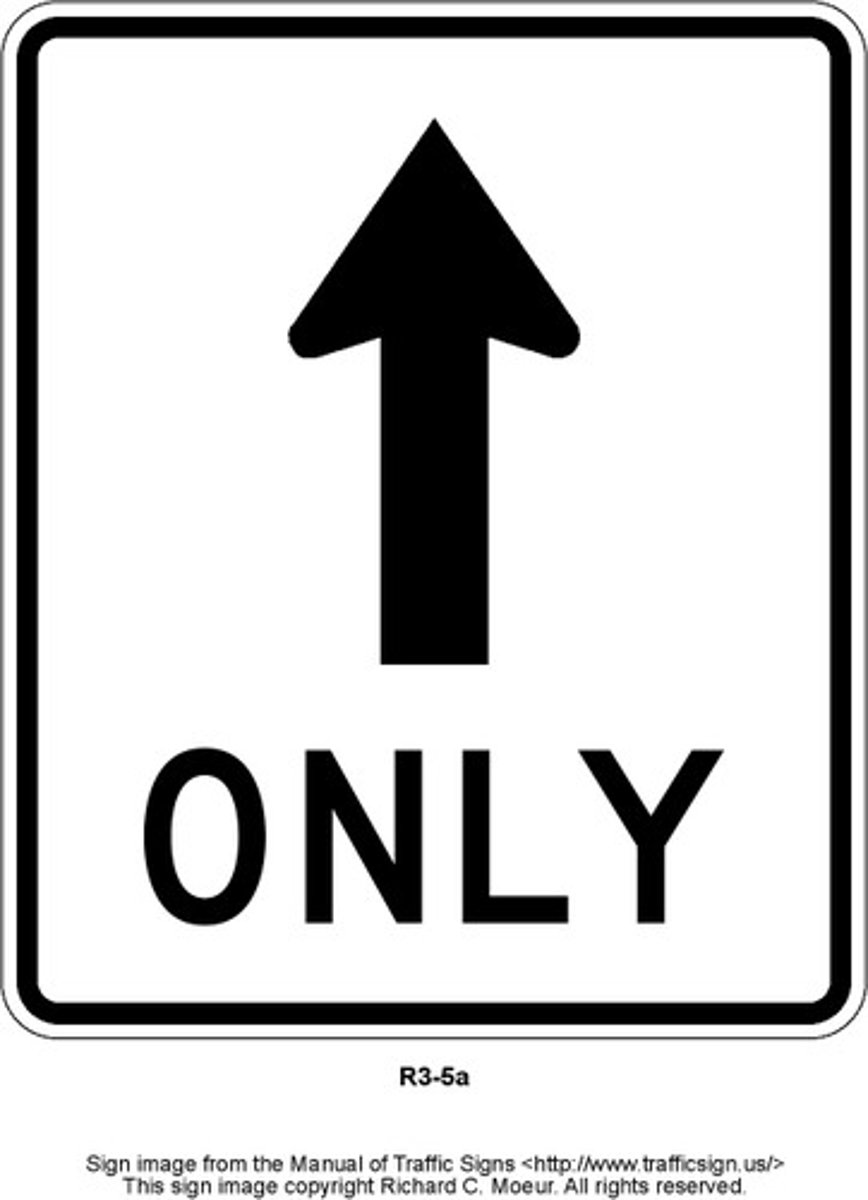
Overhead lane sign
What type of sign is this?
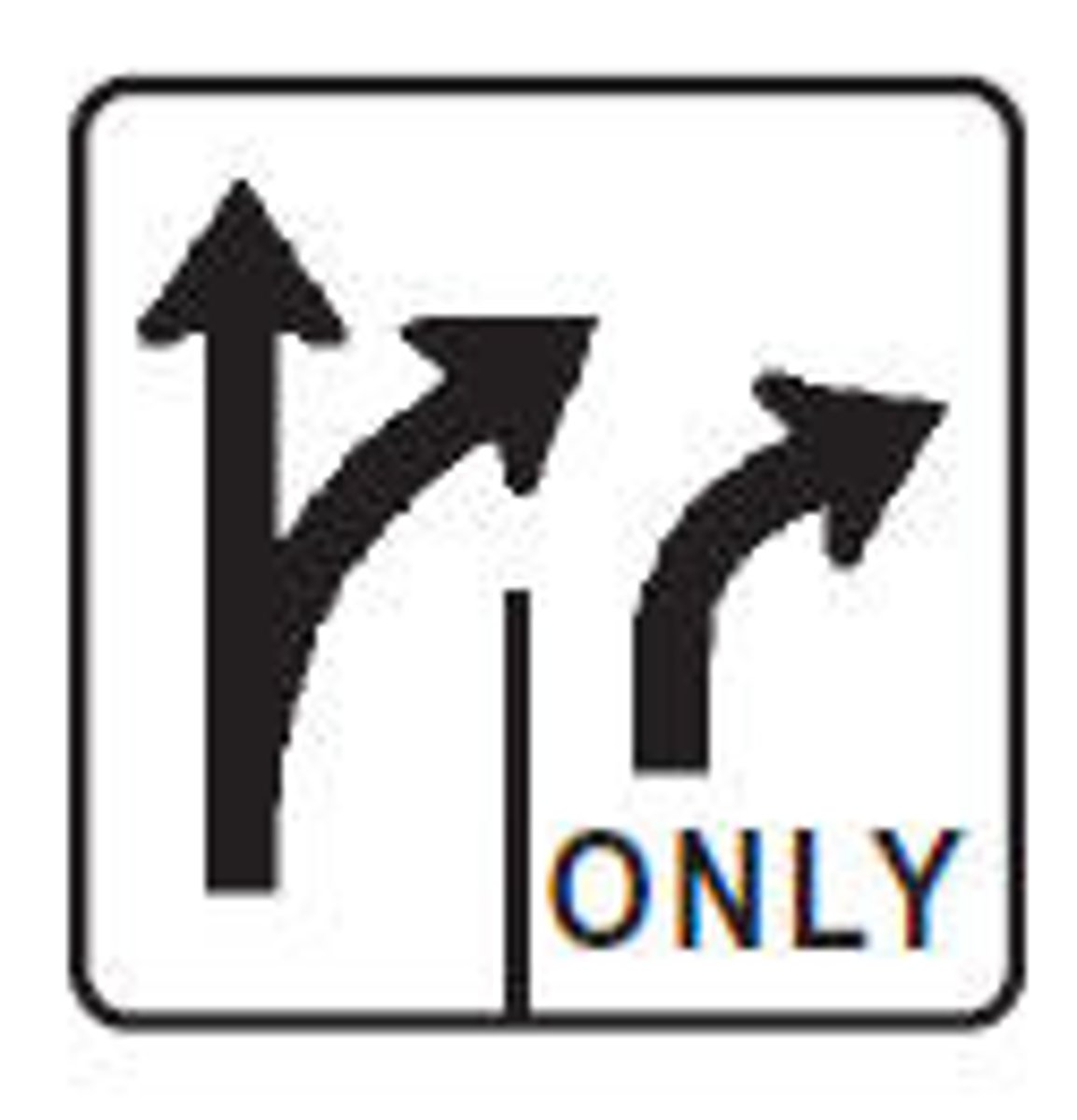
What does a traffic warning sign do?
- provide notice to road users of a situation that might not be readily apparent